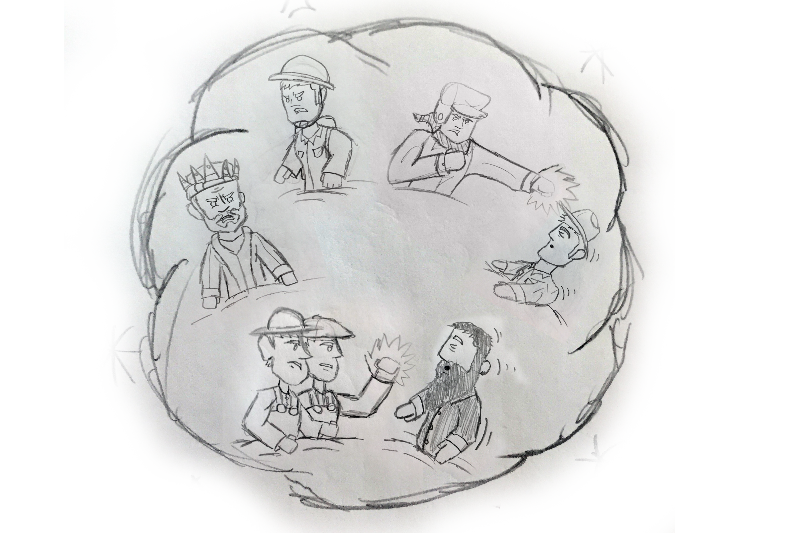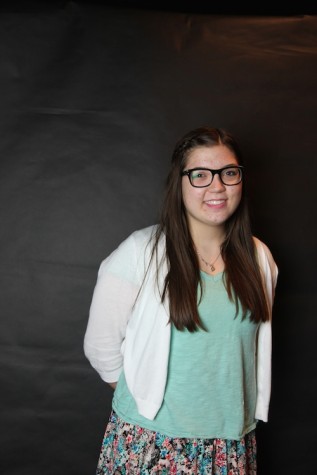Battle of the Books: Which of Central’s required readings is the best?
February 23, 2016
“How to Read Literature Like a Professor,” Thomas Foster
Lindsey Pruett, [email protected]
English is by far one of my favorite subjects in school, but when I have to read a book that I do not enjoy or understand, it often diminishes the appreciation I have for the class. Of course, the only thing worse than being required to read a book, is being required to read a book that does not make any sense. Even though most classes will discuss the book together, some deeper meanings and symbolisms— however small— are still often lost on the reader.
That’s why I believe “How to Read Literature Like a Professor” by Thomas C. Foster is the best required reading book the school offers. Most of the time reading very critical, textbook-like works can be very dry, but Foster uses conversational language and humor to convey his messages while covering a bountiful range of topics from the hidden meanings behind vampires to weather.
“So vampirism isn’t about vampires?” Foster wrote. “Oh, it is. It is. But it’s also about things other than literal vampirism: selfishness, exploitation, a refusal to respect the autonomy of other people, just for starters.”
Before reading this book I did not realize before that vampires— at least literary ones— represented more than scary monsters. Who knew? Even if you are not reading “great literature” this book definitely will help you become a more thoughtful reader.
“A Thousand Splendid Suns,” Khaled Hosseini
Inaaz Mirza, [email protected]
“A Thousand Splendid Suns” by Khaled Hosseini is by far one of the most heart-wrenching and unregretable reads that some students are given the chance to experience during their high school career. The novel follows a young girl, Mariam, who was born when her mother became pregnant with the child of a wealthy man that she worked for as a housemaid.
Mariam’s wealthy father sent her mother away, out of respect for his multiple wives. Nevertheless, Mariam grows up admiring him and wanting a life with him rather than her verbally abusive mother, who seems to have difficulty showing love for her.
One of several reasons that this is one of the best books one will read in high school is that it is a novel that will give one a new perspective— a new lens that gives one the ability to see what is outside rather than just the bubble that one may be living in.
Another reason that this book is not another let down of an assignment is because the story continuously makes one question his own values in society. There are unfamiliar customs presented in this book that will have one thinking voluntarily rather than just as a forced homework assignment.
If someone wants a reading assignment that they can’t put down and that will pull at their heart strings, this is the best choice.
“Outliers,” Malcolm Gladwell
Alison Pfaff, [email protected]
Oh, the dreaded required academic reading. I swear, a teacher saying the words, “We will be reading…” causes tension to flow across a quiet classroom. Required reading is sometimes seen as the average high schooler’s nightmare, but I have never seen it that way. I have been able to find at least one tiny sliver of light onto any book I’m “forced” to read. Specifically, reading “Outliers” by Malcolm Gladwell in English 3 is one of the most interesting and engaging books I have read in my high school career. The nontraditional, nonlinear storyline format—small stories within chapters— made it more interesting for me to read. I’ll start off by saying it’s nonfiction, which I found a love for as a sophomore after reading “The Glass Castle” by Jeannette Walls.
The book, broken into chapters all dealing with different types of people, all analyze one thing: the Outlier.
In this case, it analyzes those who have been successful and why, based on factors such as how long a musicians such as the Beatles practice. It also studies Korean Air’s spike in plane crashes through the ‘80s and ‘90s and why no one hears about the smartest man in the world. Among other claims, it goes on to suggest that a person’s birthday has a lot to do with how successful they will be. While some unpopular claims are brought to light, I was intrigued through every chapter we read for that class.
“Tuesdays With Morrie,” Mitch Albom
Julie Park, [email protected]
Let me start off by saying that “Tuesdays With Morrie” is more than a mere tear-jerker. Spindled with  care and emotionally-charged words, Mitch Albom wonderfully narrates the story of his last months with his former college professor, Morrie Schwartz. A new topic was always intertwined within the words every few pages.I stopped to think about how the issues in the book were so evident in my own life and in those around me, leaving a slightly aching disappointment in my heart as I read. But the way that I became so attached to Morrie and the way his goodness spread to my heart, it’s incredible and possibly a little unbelievable. “Tuesdays with Morrie” is one of the books that causes post-book depression and is one that I know I can always return to with anticipation.
care and emotionally-charged words, Mitch Albom wonderfully narrates the story of his last months with his former college professor, Morrie Schwartz. A new topic was always intertwined within the words every few pages.I stopped to think about how the issues in the book were so evident in my own life and in those around me, leaving a slightly aching disappointment in my heart as I read. But the way that I became so attached to Morrie and the way his goodness spread to my heart, it’s incredible and possibly a little unbelievable. “Tuesdays with Morrie” is one of the books that causes post-book depression and is one that I know I can always return to with anticipation.
“Night,” Elie Wiesel
Sasha Fenton, [email protected]
Often when immersing myself in books, the stories flow in a constant stream of thought, eventually joining together in one mass story. In this intertextual novel, individual stories lose their names, but their tales remain. “Night” by Elie Wiesel is an exception, and after reading parts of it in eighth grade, I was overjoyed to be given the chance to read the entire novel for my junior English class.
Elie Wiesel’s memoir “Night” was originally published with a stunning 862 pages and was later condensed into a 116 page translation in the United States. Yet those 116 pages are still filled with heart and gut-wrenching emotions, showing the world the monstrous actions that took place in the holocaust concentration camps. Wiesel shares with us through vivid imagery the darkness of the soul and loss of faith, reminding us what it means to be alive.
“Walden,” Henry David Thoreau
Freja Sonnichsen, [email protected]
When introducing “Walden” to my class, my teacher told us the story of a student who approached her after reading the book, saying, “It was the most important book [they] would ever read.” My teacher told us this story as she wanted our class to understand the significance of the book we were about to dive into, and the impact it could have on us. “Walden” discusses the idea of a simple life, a concept which many have completely forgotten about in today’s busy world. While going off to live in solitude for a few years in the forest may not be ideal (or even possible) today, the principles behind it should be taught as they are important in creating confident students. Being comfortable with oneself and creating one’s own identity opposed to taking on the one from society is the best lesson that could ever be taught in a classroom.












